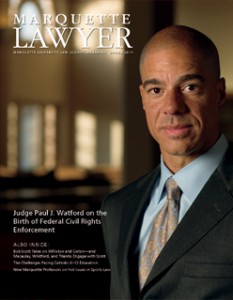I know you are all bereft at the thought of the final Israel blog posts! I’ll be sharing two from my students this week. The first is on the Israeli elections. Our trip was perfectly timed right before the Israeli elections and so we had already been learning about the different political parties in Israel and then seeing campaign posters all over the country.
Student Adam Marshall wrote about his experience:
“As a group of young soon-to-be lawyers, it was unbelievable to experience the last leg of a much-awaited election in Israel. The country, after coming off of a brief war in the summer with its Palestinian neighbors, was eager to see if there would be a change in leadership or if everything would remain business as usual. While the Israeli election got sucked into the American media due to a congressional visit by Prime Minister Benjamin Netanyahu, which sparked a trivial debate between Republicans and Democrats, there was much more meaning to the elections in Israel.
“New elections in Israel meant possible new leadership of the country, which could lead them either closer or further away from peace with Palestine. As a student who arrived in Israel with the goal of studying the conflict, it seemed apparent that this would be the most important talking point in the elections. However, I was shocked to learn that the conflict was in fact not the most important issue in the election. In the end, what seemed to have won Netanyahu his seat once again was his foreign policy, not in regards to Palestine, but rather on Iran’s nuclear program, which was the topic of his controversial speech in the U.S. It seems that the focus on social issues in Israel may have been one reason for the dramatic decline in votes for the Zionist Union [the more liberal party] in the election from what the polls showed.
“The belief going into the election was that the Zionist Union and Herzog would have a chance to beat Likud and Netanyahu, but this was not the case. Instead Likud won 30 seats and the Zionist Union was behind with 24. While talking with different Israeli citizens, this belief that Herzog had a chance of winning remained, even though it was Netanyahu’s face that I saw all over Israel. During our bus rides through the city there were always political ads outside of my window. Whether it was a poster on a light post, a picture on a bus stop, or a giant billboard, there were always political ads in sight. Most of the ads were for Netanyahu, and I presume that is because he had the most money for the campaign, or rather his party did. Israel has a proportional representation voting system so a party runs a list of people with their top politicians at the head of the list. Other parties were represented around the cities, but it was clear that Likud had more area covered.
“One reason why the Israeli-Palestinian conflict may not have been a major issue in the election is that the people of Israel believe that politics remains a major roadblock to peace with Palestine. That is to say that, without the politicization of the conflict, there might actually be a peace agreement made. It seems to be that the split of political parties and the ever-changing party system creates a political scheme in which it is difficult to find peace. Unlike the U.S., Israel has a multi-party system, 10 of which make up the new Knesset after the elections. Parties change and make alliances after each election and this changes the political nature of the election. If the parties were able to come together on their views regarding the conflict, there might be an actual peace agreement in the near future.
“It will be amazing to compare how my experience in Israel during their elections may be similar or different to my experience in the 2016 elections in the U.S. I assume it will be very different. I have a higher stake in the U.S. elections, and I can actually vote, but comparing campaigning styles and, more importantly, what issues are the most important will be very interesting. I will never forget my experience in Israel and the political culture there.”
We also visited the Knesset (shown below) and student Nate Hofman shared some details:
“On day three of the journey to Israel, our class was fortunate enough to get a tour of the Knesset. The courtyard was adorned with Israeli flags and a long walkway leading up to an impressive building. Unlike our domed capital building, the Knesset building is more rectangular with a flat roof. Once inside, our tour guide greeted us. Unfortunately, the Knesset was not in session because of the elections taking place a week from the time of our visit. We got to see a replica of the Israeli Declaration of Independence. It was written on a scroll, which seemed very Old Testament Israeli and perfectly fitting.
“The Knesset floor looks similar to the Congressional floor. The members sit in a semi circle facing the speaker on a raised podium. Above the 120 seats of the Knesset floor are two levels of viewing seats. The level closest to the floor, where we sat and listened, is used for invited guests and foreign dignitaries. The furthest from the floor is open for the public to view the Knesset.”

